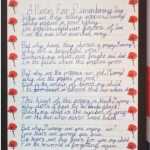National Curriculum Overview and Programme of Study
The National Curriculum is a set of subjects and standards used by primary and secondary schools so children learn the same things. It covers what subjects are taught and the standards children should reach in each subject.
Every state-funded school must offer a curriculum which is balanced and broadly based and which:
– promotes the spiritual, moral, cultural, mental and physical development of pupils at the school and of society.
– prepares pupils at the school for the opportunities, responsibilities and experiences of later life.
The National Curriculum forms one part of the school curriculum, which comprises all learning and other experiences that each school plans for its pupils.
The National Curriculum for five to 11 year olds is made up of blocks of years, known as key stages:
– Infant children (Year 1 and Year 2) are known as Key Stage 1.
– Junior children (Years 3 to 6) are known as Key Stage 2.
Formal assessment takes place at the end of each Key Stage (Years 2 and 6). A phonics screening check takes place in Year 1.
In addition, schools are advised to teach personal, social, health and economic education (PSHE) and citizenship, together with at least one modern foreign language.
Pupils are closely monitored throughout the school year to ensure that they make progress from whatever their starting point.
The National Curriculum primary programmes of study and attainment targets for key stages 1 and 2.
National Curriculum Subjects





